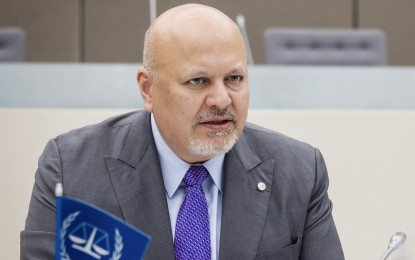MANILA – The disqualification of chief prosecutor Karim Khan from the case involving former president Rodrigo Duterte before the International Criminal Court (ICC) has “no impact” on the ongoing investigation, according to a spokesperson.
“This disqualification has no impact on the ongoing case against Mr. Duterte,” an ICC spokesperson stated.
“The work of the Office of the Prosecutor on the situation related to the Philippines is led by Deputy Prosecutor Mame Mandiaye Niang,” the spokesperson added.
A court document confirmed that the ICC Appeals Chamber has disqualified Khan due to his involvement, prior to taking office, in submitting certain information related to Duterte’s alleged crimes in the Philippines.
The information, also known as Article 15 communication, was submitted on June 29, 2018, to the former prosecutor.
The spokesperson clarified that the Appeals Chamber did not find that actual bias on the part of the prosecutor had been demonstrated in the defense’s request.
“However, it concluded that a number of factors may give rise to an objectively reasonable appearance of bias in the eyes of a reasonable observer, such that they would conclude that the Prosecutor could be expected to have formed an opinion on the case against Mr. Duterte during his involvement in the Article 15 communication that, objectively, could adversely affect his required impartiality,” the statement said.
In a separate statement, the ICC Office of the Prosecutor said its “independent and impartial investigation into alleged Rome Statute crimes in relation to the Situation in the Philippines is ongoing.”
It added that the investigative and prosecutorial activities over the case—including the application for the warrant of arrest—are led by a multi-disciplinary team under Niang’s supervision.
“The Office has been able to advance the case against Mr. Duterte solely on the strength of independently gathered evidence, and information collected from a wide range of sources, including interviews with witnesses, information from States, international partners, and civil society, as well as publicly available information,” the statement said.
“The victims and survivors in the Philippines situation deserve justice and accountability. The Office’s activities in this case will continue, contributing to ensuring that justice is pursued impartially and independently,” it added.






